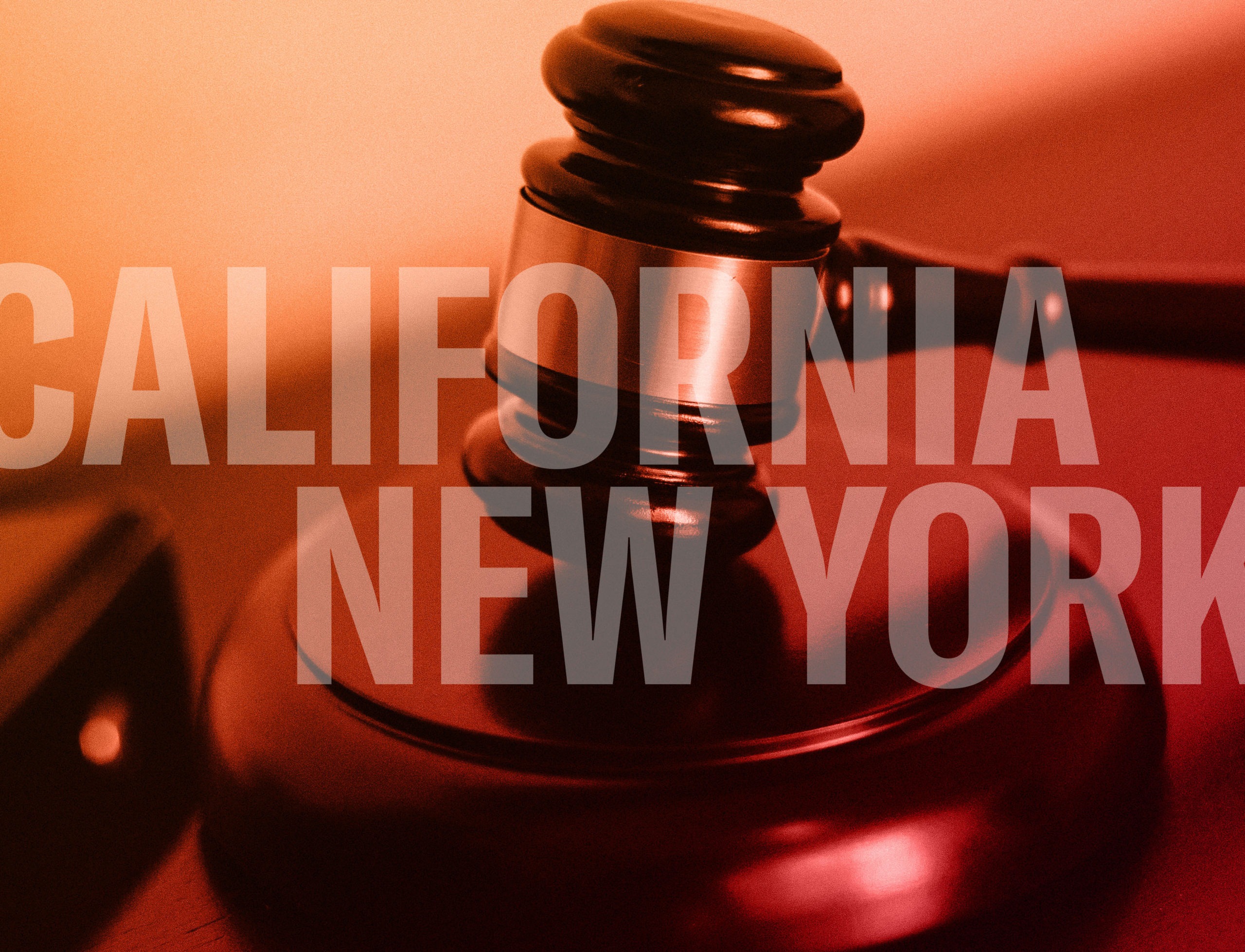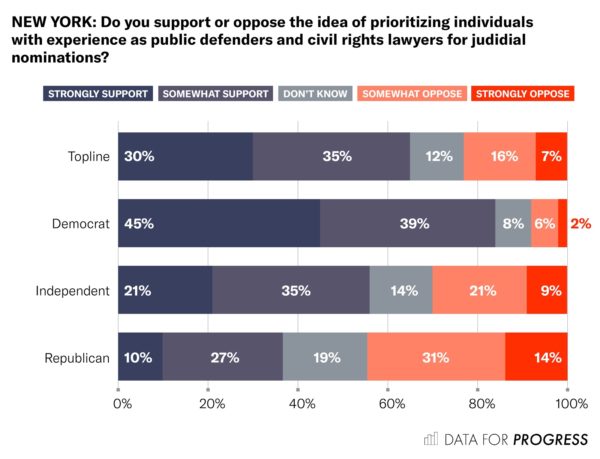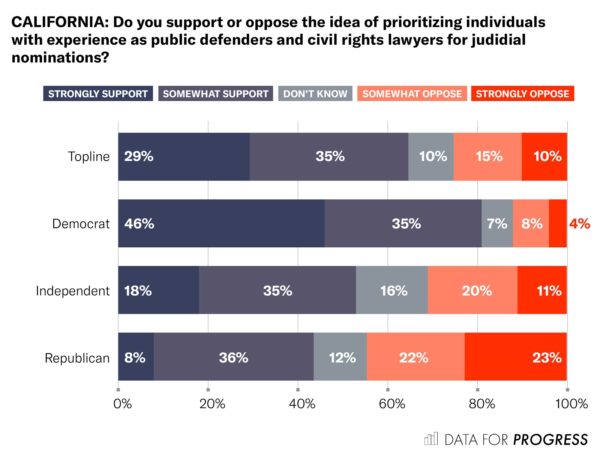New York and California Voters Want More Public Defenders, Civil Rights Lawyers on the Federal Bench
Voters in New York and California—two states with large numbers of federal judicial vacancies—overwhelmingly support their senators recommending more civil rights lawyers and public defenders for the federal bench.

A new poll from Data for Progress and The Lab, a policy vertical of The Appeal, shows that voters in New York and California—two states with large numbers of federal judicial vacancies—overwhelmingly support their senators recommending more civil rights lawyers and public defenders for the federal bench.
In both states, as is true across the country, the federal courts are heavily skewed toward former prosecutors and corporate lawyers—attorneys who spent their careers representing the wealthy and powerful—while lawyers with experience enforcing civil rights or representing people charged with crimes are largely excluded. Our new poll shows that voters want their senators, with their crucial role in identifying and recommending judicial nominees, to buck this trend under President Joe Biden.
In New York, 65% of likely voters, including 84% of Democrats support prioritizing public defenders and civil rights lawyers for judicial appointments:

The numbers are similar in California, with 64% of likely voters, including 81% of Democrats, supporting:

Key Context
Across the country, federal judges with backgrounds in public defense or civil rights are underrepresented, and the number of federal judges with backgrounds in corporate law or prosecution are disproportionately high. The disparity undermines fairness and public confidence in the courts, a problem that White House counsel Dana Remus acknowledged in a letter last month asking Democratic senators to prioritize professional diversity when they recommend judicial nominees. Senators play a vital role selecting the federal judges in their states: They vet candidates and recommend nominees to the president, often with complete deference, especially for the trial-level district courts.
With Democratic senators, including Senate Majority Leader Chuck Schumer, and 21 judicial vacancies between them, New York and California will be critical states as President Biden begins making nominations to a judiciary that has been dramatically reshaped by former President Donald Trump. But until now, senators from both states, especially Schumer and Senator Dianne Feinstein in California, have exacerbated the significant underrepresentation of public defenders and civil rights lawyers on the bench.
For example, of the 27 active judges in the Southern District of New York, 16 are former prosecutors while at most 2 are former public defenders, according to data from the Federal Judicial Center. The disparity is worse in the Eastern District, where there are 10 former prosecutors among the court’s 12 active judges and not one former public defender. This imbalance isn’t a product of Trump. President Barack Obama’s 22 total appointees to these courts included 14 former prosecutors and only one public defender. And at the appellate level, the 3 New York judges Obama appointed to the Second Circuit Court of Appeals are all former prosecutors.
The same trend extends to California. In the Central District of California, there are 11 former prosecutors and only 2 former public defenders among the court’s 22 active judges; in the Southern District, the 9 active judges include 4 former prosecutors and no public defenders. (The Northern District has more balance, with 4 former prosecutors and 3 public defenders among its 13 judges.)
At the appellate level, there are 16 California judges on the Ninth Circuit Court of Appeals, and while 6 of them are former prosecutors, none is a former public defender (Judge Richard Paez worked at the Legal Aid Foundation of Los Angeles). Three of the 4 California judges that President Obama appointed to the Ninth Circuit are former prosecutors.
With 7 current judicial vacancies in New York (including one on the Second Circuit) and 14 current vacancies in California, Senators Schumer, Kirsten Gillibrand, Feinstein and Alex Padilla can now add the long-absent professional diversity that their voters are demanding.
Polling Methodology
California: From January 16 to January 19, 2021, Data for Progress conducted a survey of 564 likely voters in California using web panel respondents. The sample was weighted to be representative of likely voters by age, gender, education, race, and voting history. The survey was conducted in English. The margin of error is ±4.1 percentage points.
New York: From January 16 to January 19, 2021, Data for Progress conducted a survey of 558 likely voters in New York using web panel respondents. The sample was weighted to be representative of likely voters by age, gender, education, race, and voting history. The survey was conducted in English. The margin of error is ±4.1 percentage points.

